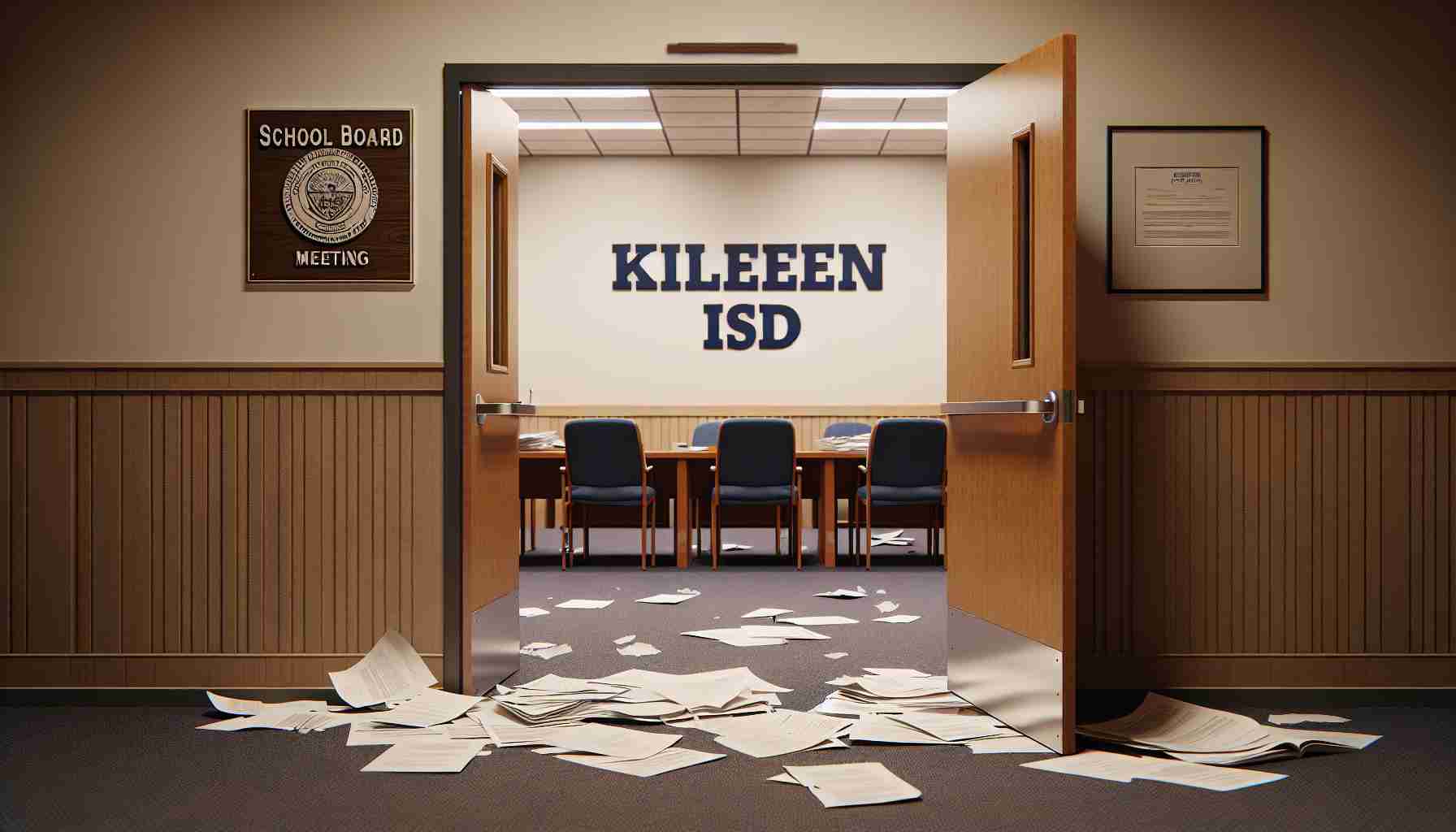
Killeen ISD Board Goes Behind Closed Doors: What They Didn’t Want You to Hear
- The Killeen Independent School District Board held a closed session for over three hours without public input.
- This lack of community engagement sparked speculation about significant issues, such as budget cuts or educational reforms.
- The discussion raised concerns about transparency in local governance and its implications for the school’s future.
- Community members are encouraged to stay informed about decisions made behind closed doors that impact education.
In a surprising turn of events, the Killeen Independent School District (KISD) Board of Trustees convened for a workshop that quickly took a secretive twist. As President Brett Williams initiated the meeting at 9 a.m., an eerie silence enveloped the room—no community members had signed up to voice their concerns in the public forum.
With no one to engage with, the board swiftly transitioned into a closed session, sealing themselves off for an extensive three and a half hours. Curiosity hangs in the air as board members, alongside KISD Superintendent Jo Ann Fey, relocated to a private conference room, their discussions shielded from public eyes in adherence to the Texas Open Meetings Act.
What’s brewing behind those closed doors? Speculation abounds as community members wonder about critical issues that might reshape the district. Is it budget cuts, new educational initiatives, or perhaps something more controversial? The lack of public disclosure raises important questions about transparency and community involvement in local governance.
As the meeting concluded, the decision to hold such vital conversations out of public view leaves many in the community eager for answers. The key takeaway here is clear: transparency in education governance is crucial. Killeen residents, stay informed—after all, what happens behind closed doors affects the future of your schools!
What’s Happening Behind Closed Doors? KISD Workshop Raises Eyebrows!
New Developments and Insights on KISD’s Closed Meeting
Recently, the Killeen Independent School District (KISD) Board of Trustees held a workshop that shrouded itself in secrecy, igniting speculation and concern within the community. Here are some relevant insights and angles that were not previously addressed but are crucial for understanding the implications of such actions:
# Understanding Educational Governance
1. Transparency in School Boards: The recurring theme of transparency is vital. With closed sessions becoming a common practice, many community members fear that critical decisions are being made without proper public oversight. This scenario is not just unique to KISD but reflects a broader trend in educational governance across various districts.
2. Impact of Closed Sessions: Closed meetings can lead to potential losses in public trust, and research suggests that transparency can significantly enhance community engagement and satisfaction with educational institutions. By establishing a more open dialogue, districts may benefit from diverse viewpoints and innovative solutions.
3. Future Initiatives: Speculation about what was discussed could include budget cuts that may affect staffing and programs, upcoming curriculum changes, or policy decisions affecting school operations. Keeping the community in the loop can prevent misunderstandings and foster a collaborative environment.
# Common Questions Related to KISD’s Closed Sessions
1. What issues are typically discussed in closed meetings of school boards?
Closed sessions often address sensitive issues, such as personnel matters, legal issues, student discipline, and financial matters, which require confidentiality to protect privacy and adhere to regulations.
2. How can community members influence decisions made during these closed sessions?
While direct influence during the meeting may be limited, community members can advocate for transparency through public forums, attend open meetings, and engage with board members to express their concerns and expectations regarding governance.
3. What are the legal frameworks governing closed meetings for school boards in Texas?
Under the Texas Open Meetings Act, school boards are permitted to convene closed sessions for specific topics but must provide public notice of the meeting and outline the subjects to be discussed. Failure to do so raises questions about compliance and accountability.
Additional Insights and Trends
– Sustainability in Education: As school districts face tightening budgets, many are exploring sustainable practices to minimize expenses while enhancing educational quality. This shift could also be part of KISD’s closed discussions, including funding for sustainable programs.
– Educational Innovations: With the rise of digital tools and online learning platforms, conversations about integrating technology into the classroom are essential. KISD may explore partnerships or initiatives aimed at fostering a modern learning environment.
– Community Engagement: A recent trend in educational governance emphasizes the need for active community involvement. Many districts are now implementing online platforms for feedback to better gauge community sentiments during decision-making processes.
To stay informed and engaged with developments at KISD, consider these resources: Visit KISD Official Website for updates and news.
In conclusion, the KISD Board’s choice to meet in private may raise more questions than it answers. A transparent approach could not only prevent speculation but also lead to more inclusive decision-making processes that reflect the needs of the community. Residents are encouraged to demand transparency to ensure the future of their educational environment.